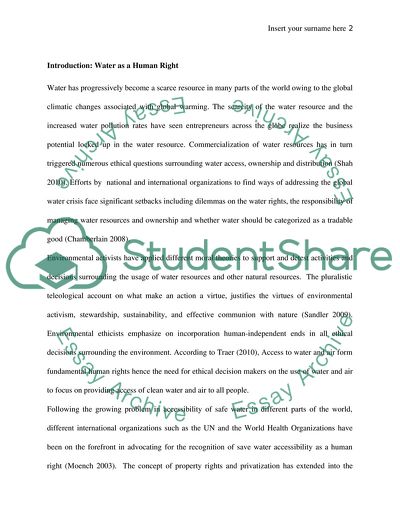Cite this document
(Water as a Human Right Assignment Example | Topics and Well Written Essays - 1250 words - 3, n.d.)
Water as a Human Right Assignment Example | Topics and Well Written Essays - 1250 words - 3. https://studentshare.org/environmental-studies/1775592-ethical-issues-in-access-to-water-is-water-a-human-right-whr
Water as a Human Right Assignment Example | Topics and Well Written Essays - 1250 words - 3. https://studentshare.org/environmental-studies/1775592-ethical-issues-in-access-to-water-is-water-a-human-right-whr
(Water As a Human Right Assignment Example | Topics and Well Written Essays - 1250 Words - 3)
Water As a Human Right Assignment Example | Topics and Well Written Essays - 1250 Words - 3. https://studentshare.org/environmental-studies/1775592-ethical-issues-in-access-to-water-is-water-a-human-right-whr.
Water As a Human Right Assignment Example | Topics and Well Written Essays - 1250 Words - 3. https://studentshare.org/environmental-studies/1775592-ethical-issues-in-access-to-water-is-water-a-human-right-whr.
“Water As a Human Right Assignment Example | Topics and Well Written Essays - 1250 Words - 3”. https://studentshare.org/environmental-studies/1775592-ethical-issues-in-access-to-water-is-water-a-human-right-whr.


